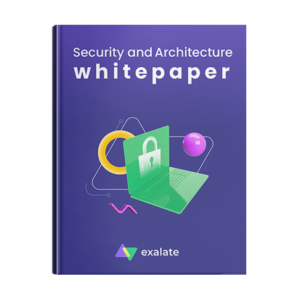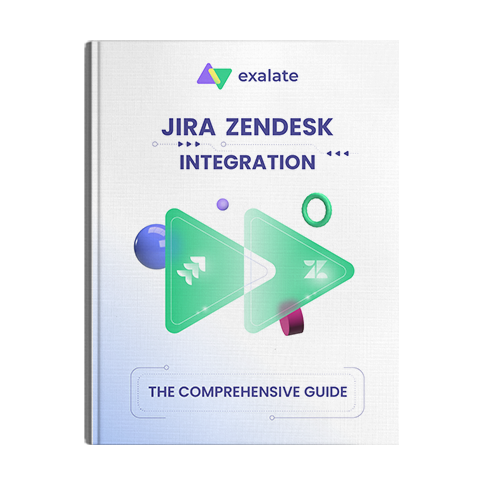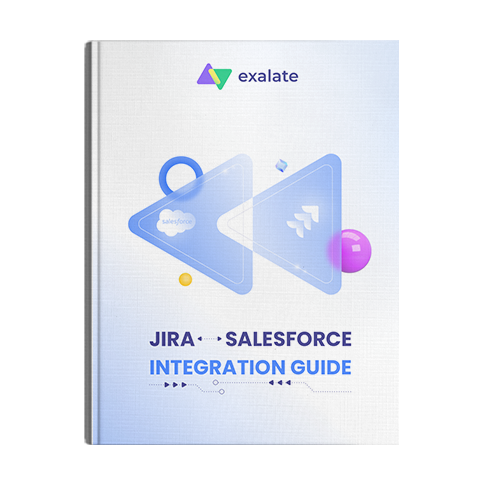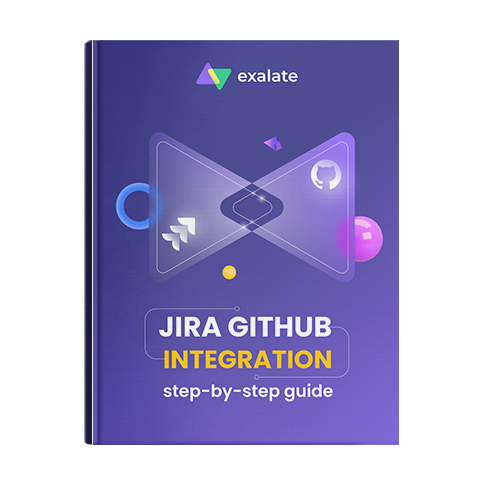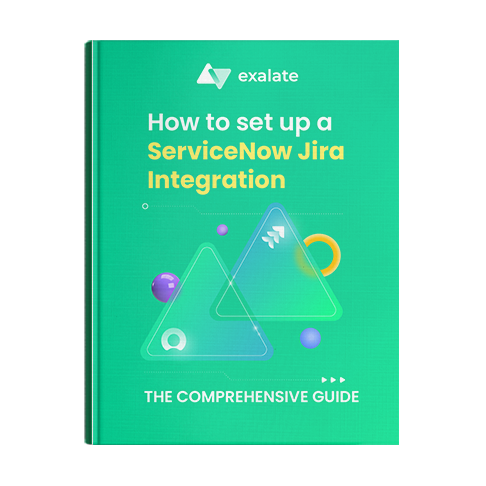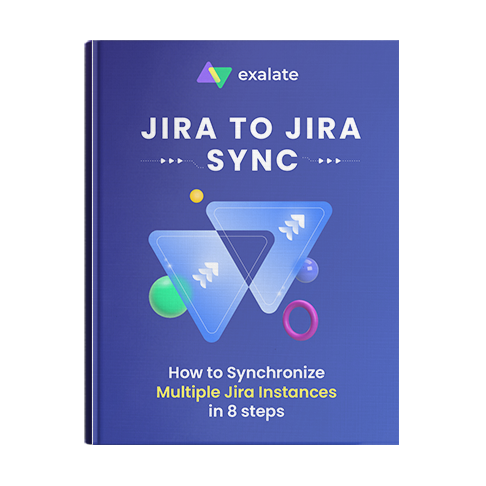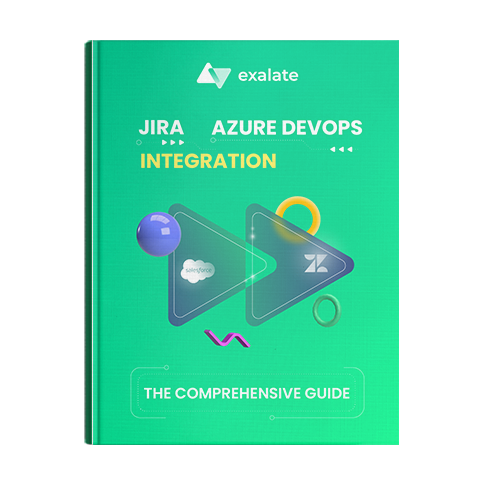two-way integration
Sync Jira and Your Favorite Tools
Set up a deep two-way sync between multiple Jira instances, Servicenow, GitHub, Salesforce, Zendesk, Azure DevOps and more.
Unlock collaborative teamwork across systems, departments and company borders.
- Free forever with the basic mode
- 30-day free trial for premium features







A Truly Flexible Synchronization Solution
Real-time Jira Sync
- Get real-time status updates on critical issues.
- Reduce manual data entry errors with automatic sync.
- Sync information uni or bi-directionally.
- Provide accurate and consistent information for the right stakeholders.
- Restart the sync automatically after down times.
Triggers for Automated Jira Integration
- Use native query language triggers for automatic information flow.
- Use fine-grained JQL triggers for syncing issues and sprints.
- Edit triggers anytime without disrupting the sync
- Have advanced independent control using triggers present on both sides.
Bulk Operations
- Sync multiple issues based on the conditions you set.
- Connect existing issues with remote entities.
- Have advanced control over bulk syncing.
- Choose to sync existing comments, attachments, or worklogs.
Custom Data Mapping Rules
- Create custom mappings with just a few lines of code (with Groovy scripts).
- Map statuses, issue types, and priorities the way you want.
- Handle formatting differences between Jira and other platforms.
- Control the sync between multiple Jira projects and instances.
- Fine-tune the data mapping independently for both outgoing and incoming information.
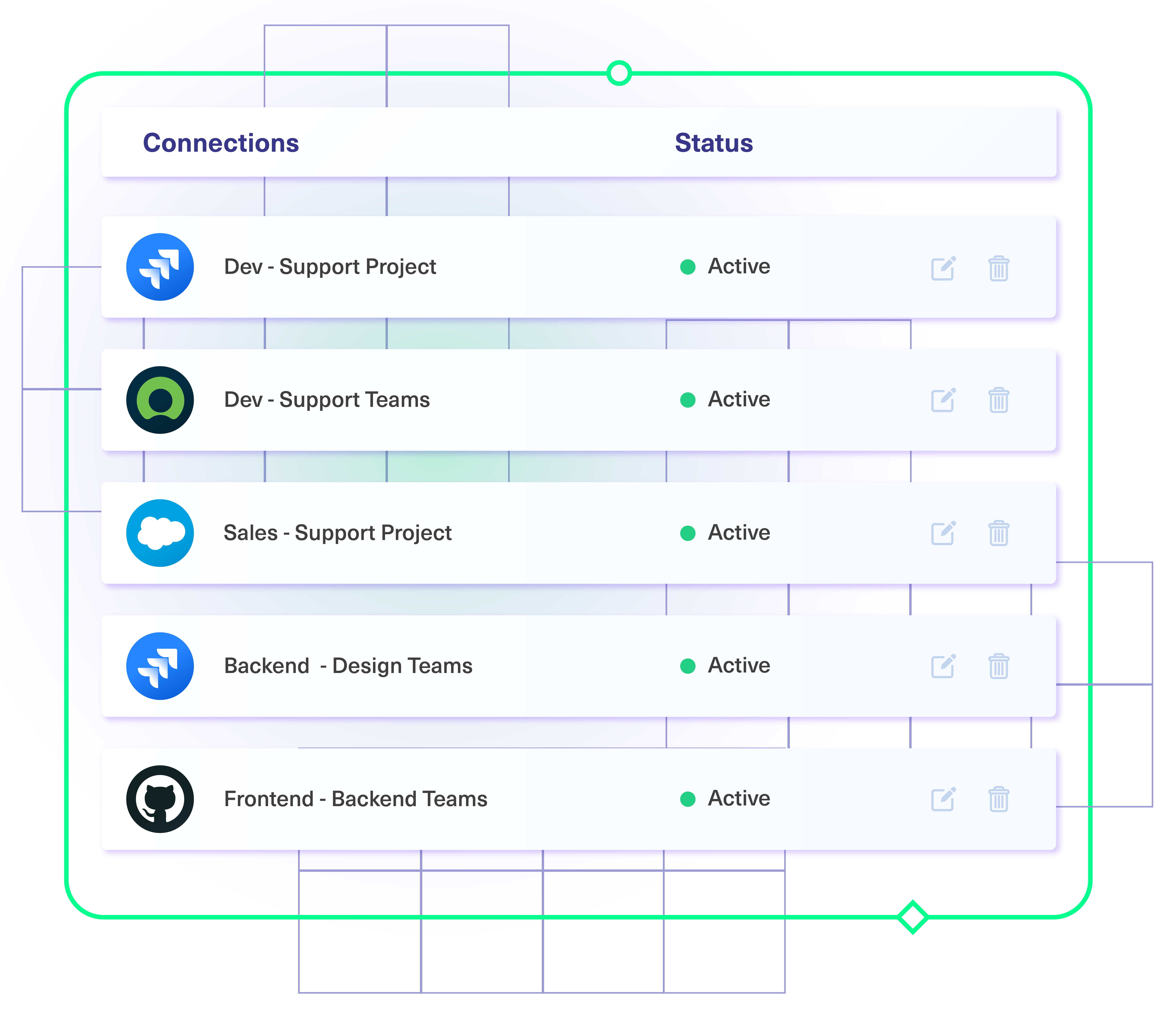
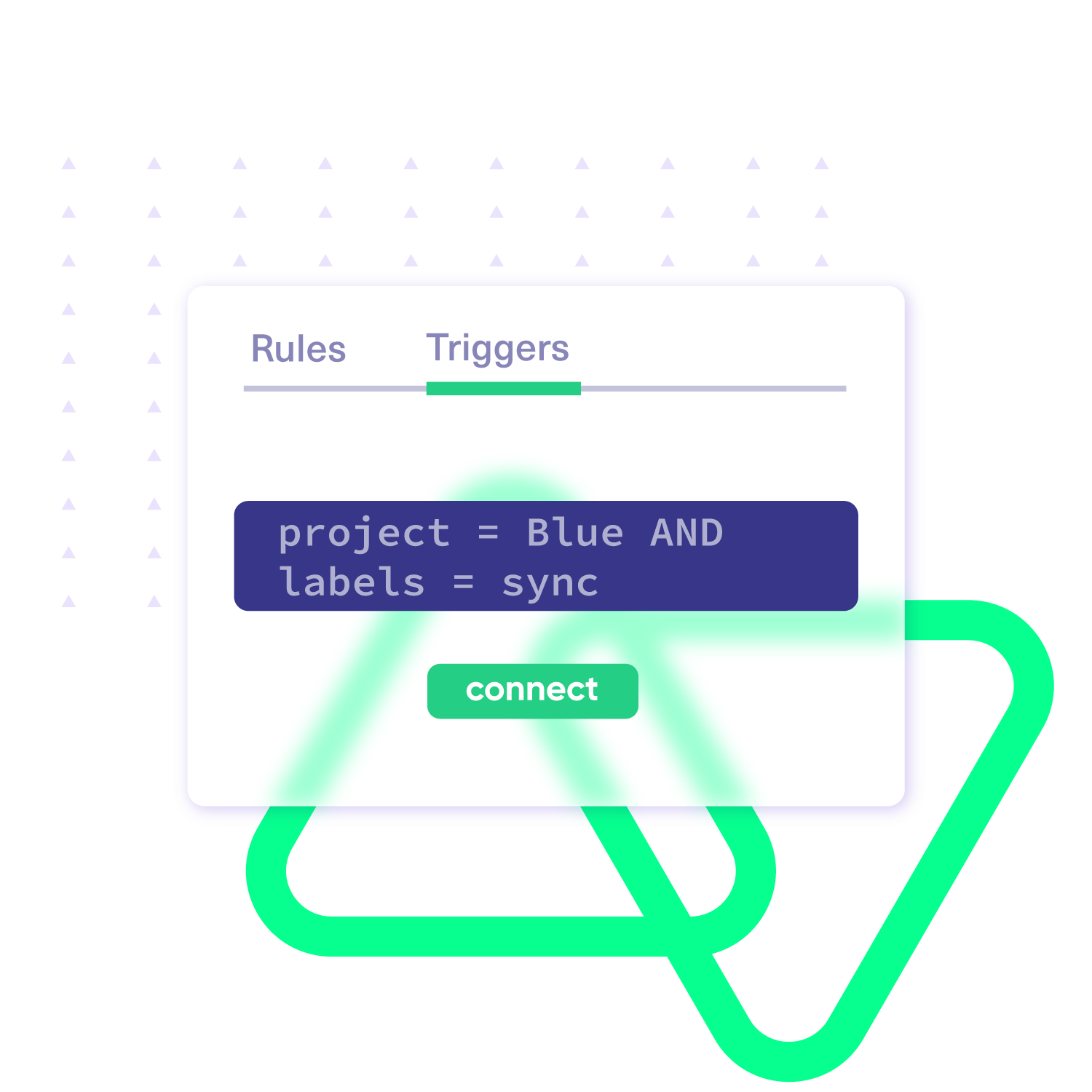
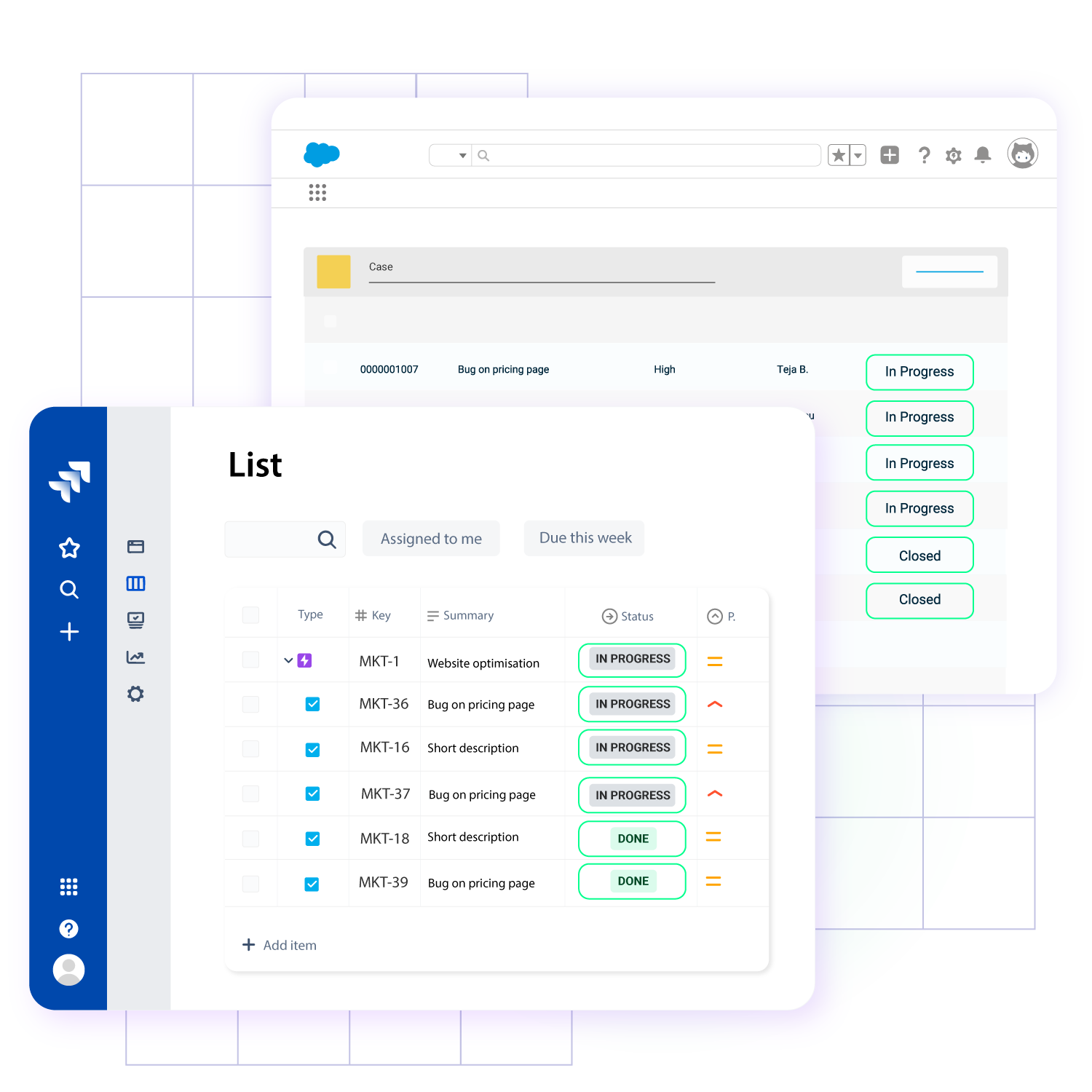
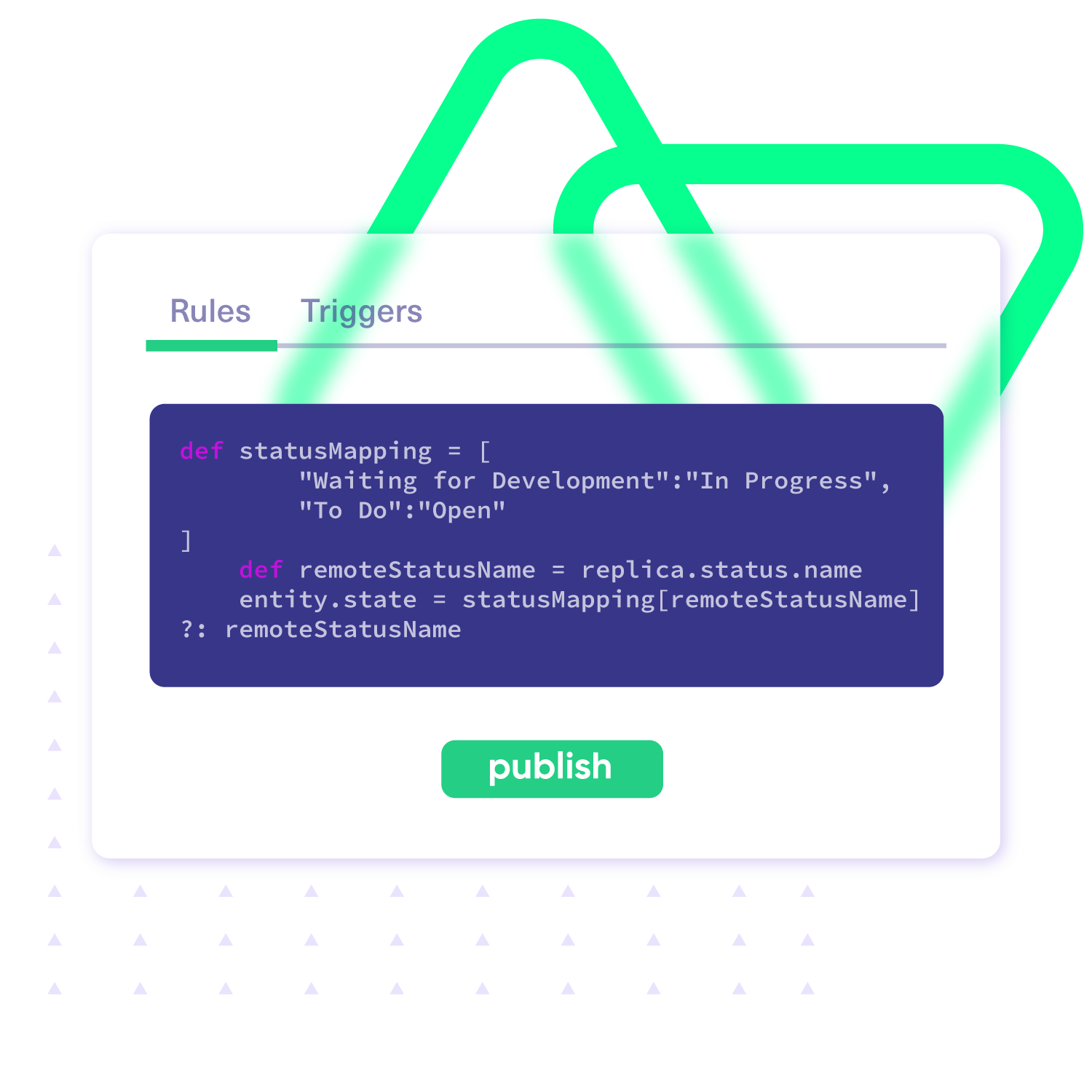
“






Easy Setup in Minutes
01
install
Install the Exalate app on each tool you want to sync, so every admin has complete autonomy over their integration.
02
connect
Connect the instances you want to integrate. Choose no-code set-up or scripting mode.
03
customize
Set your rules to make sure the right data is shared. And set an automation to trigger your sync.
04
synchronize
Now your instances are connected and will automatically exchange information instantly. Happy syncing!
Sync Anything between Jira and Other Tools
You can sync any data available via API. The most common fields are listed below.
Issues
+40 fields are supported, incuding:
- Custom fields
- Summary
- Status
- Description
- Key
- Comment
- Attachment
- Priority
- Third-party plugin fields (e.g Insights)
Sprints
All fields are supported, including:
- Name
- State
- Start date
- End date
- Complete goal
- Origin board ID
- Goal


Accessible to Both Business and Technical Users
Visual Mode
Seamless integration, no coding knowledge required.
- Drag-n-drop interface for faster, no-code set up
- Customize your synchronization rules from one side of the connection
- Ideal for integrations from basic to intermediate complexity
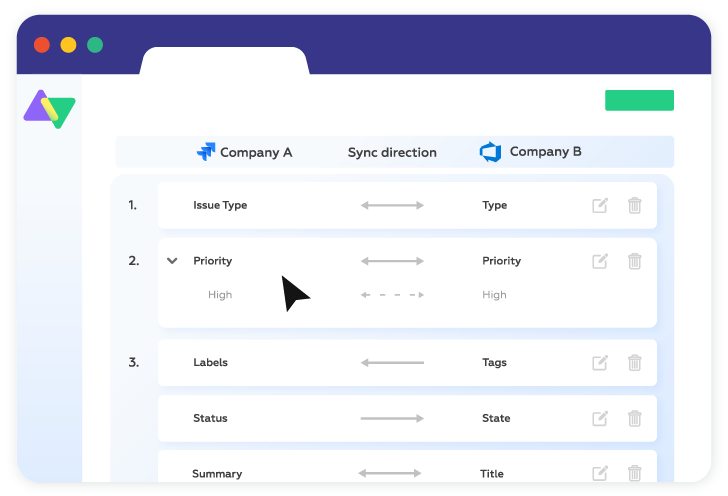
Script Mode
Limitless flexibility in configuring your integration.
- Use the groovy-based scripting engine for full flexibility
- Configure each side of the connection separately for maximum autonomy
- Prompt your requirements into AI Assist, and receive tailored scripts to get your integration up and running
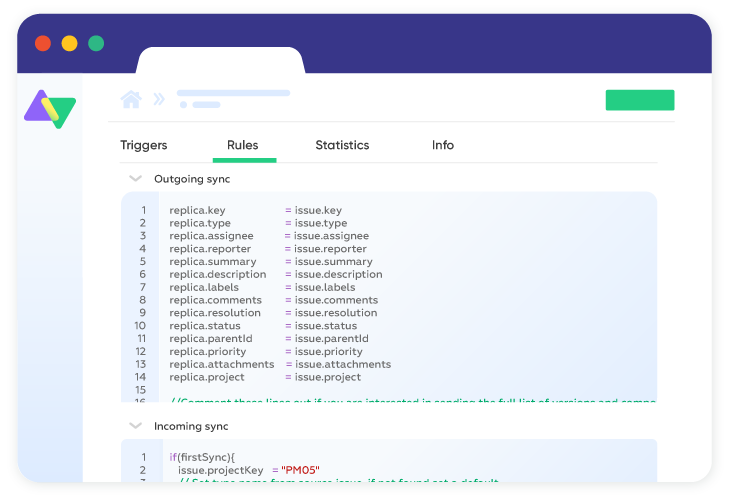
Script Less. Integrate More.
Exalate’s Script Mode just got better.
Minimize the time spent searching for relevant scripts or writing them from scratch. AI takes care of the complexity so you can focus on what matters most!
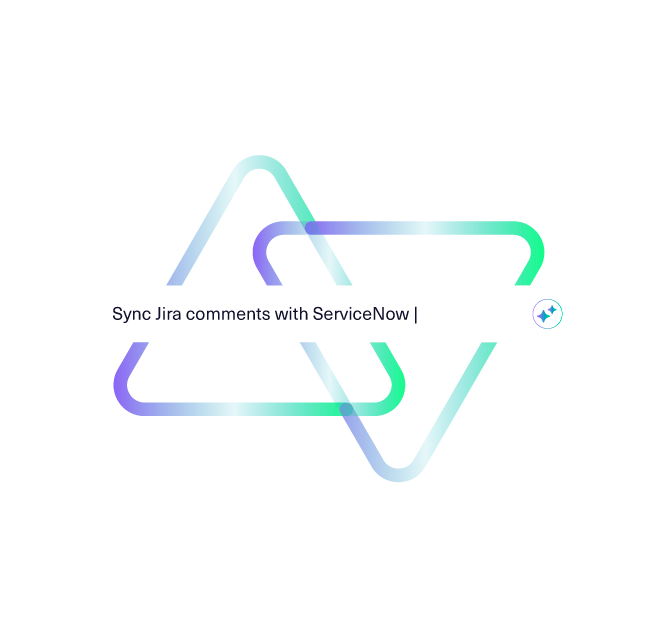
Start now, for free
You can download Exalate for Jira on the Atlassian Marketplace for Cloud, Server or Datacenter.
Get started for free with just a few clicks.

Cloud, Server and Datacenter
Sync almost any field from Issues and Sprints
Get the Exalate Security Whitepaper
Exalate is an advanced synchronization engine with various deployment models and information exchange paths. It allows you to synchronize information between multiple tools in a secure and controllable way.
To understand more, download the Exalate Security & Architecture Whitepaper
See How Exalate Works
Download our Step-by-step tutorials and see how Exalate works in detail.
Exalate is flexible enough to cover almost all integration use cases through its Groovy-based scripting engine.
You can start with basic sync scenarios out-of-the-box or implement advanced use cases using the Script mode.
Essentially, you can sync any default or custom properties, or entities available via REST APIs, set custom mappings, add advanced logic to your integrations, and do much more.
Check out some use cases implemented with Exalate.
Exalate integrates Jira (Cloud and On-premise), Salesforce, Azure DevOps, ServiceNow, Zendesk, GitHub, and more. It can be deployed on docker for all these platforms. Start your free trial here.
You can connect these platforms in the following ways:
- One to one
- One to many
- Many to one
- Many to many
Or use a combination of the above models. You can also request a custom connector or outsource your entire integration to us.
Yes, we offer a 30-day free trial. We recommend you book a short call with our experts to discuss your use case and help you get started.
In case you feel Exalate is not the right fit, you can cancel your trial anytime, and you’ll not be charged.
At Exalate, keeping your data private, safe, and secure is the topmost priority. Hence, we follow the best-in-class security practices and procedures.
We have the following security measures in place:
- ISO 27001:2022 Certified
- Single-tenancy model
- Decentralized integration control so you decide what gets shared and what doesn’t
- Secure connection between instances via a shared secret, no need to share access credentials
- Authentication lies with the underlying platform
- GDPR compliant
- JWT-based tokens authenticate every data transfer request to ensure the destination instance always gets data from the expected source instance.
- Transport Layer Security (TLS) 1.3 (and 1.2)
To learn more about the complete security posture, have a look at the Exalate Security and Architecture Whitepaper.
Check out the data security and privacy statement here.
The price of your integration is calculated based on the number and type of platforms you need to synchronize.
For example, Jira Cloud (500 users) <> Azure DevOps Cloud integration use case would differ in price from, say a Salesforce <> ServiceNow <> GitHub Enterprise integration.
If you expect a very high number of synchronizations and you’d prefer to have Enterprise SLA and Solution Assistance, that would influence the price too.
If you’d like to know how much Exalate would cost for your use case, please ask us via live chat.
We offer Standard and Premier Support depending on customer needs and the running Service Level Agreement.
As part of Premier Support, we provide higher SLAs, shorter resolution time, configuration assistance, and optimized escalation paths.
Decentralized integration is a setup where each integrating party has independent and full control over information exchange.
You decide what needs to be sent to and received from the destination without a mandatory requirement to consult or inform the other side. This way, every platform admin can change their local configuration without affecting their integration partner’s configuration. Additionally, it increases your data security and avoids accidental access to shared information.
The systems in this arrangement are inherently distributed. This makes them loosely coupled, avoiding a single point of failure. It also enhances the maintainability and scalability of your integration.
Yes, the Exalate application needs to be installed on all integrating platforms. This means you need a valid Exalate license/subscription on both your instance and your partner’s instance.
Contact our sales team for more information about our licensing and pricing model.
Exalate has already been in use since 2014 at a large number of enterprise clients. Performance tests are continually implemented to assure there will be no noticeable load on both the app or the issue tracker.
For example, some of our customers continually processes, on average, 12.000 issues per month without experiencing any significant impact on the overall instance.
Yes, you can sync historical data using Exalate.
There are two ways to do this:
Bulk Exalate – Syncs all the existing data that fulfills the trigger condition (s). This option is available under the Triggers tab.
Bulk Connect – Connects existing entities residing in different systems. You need to upload a .csv file that contains the mappings. This option is available in the Exalate admin menu panel.
Learn more about Bulk Connect and Bulk Exalate.
